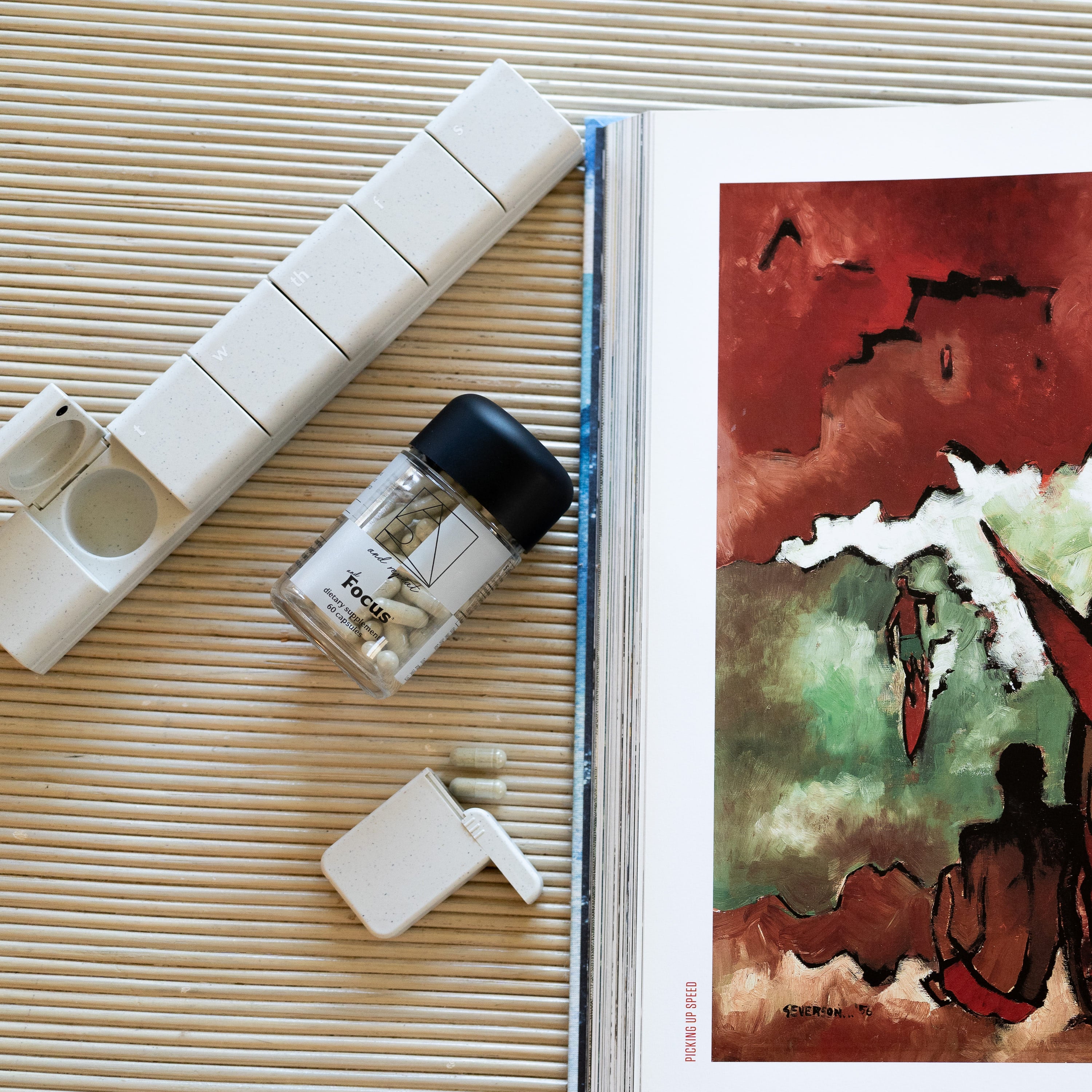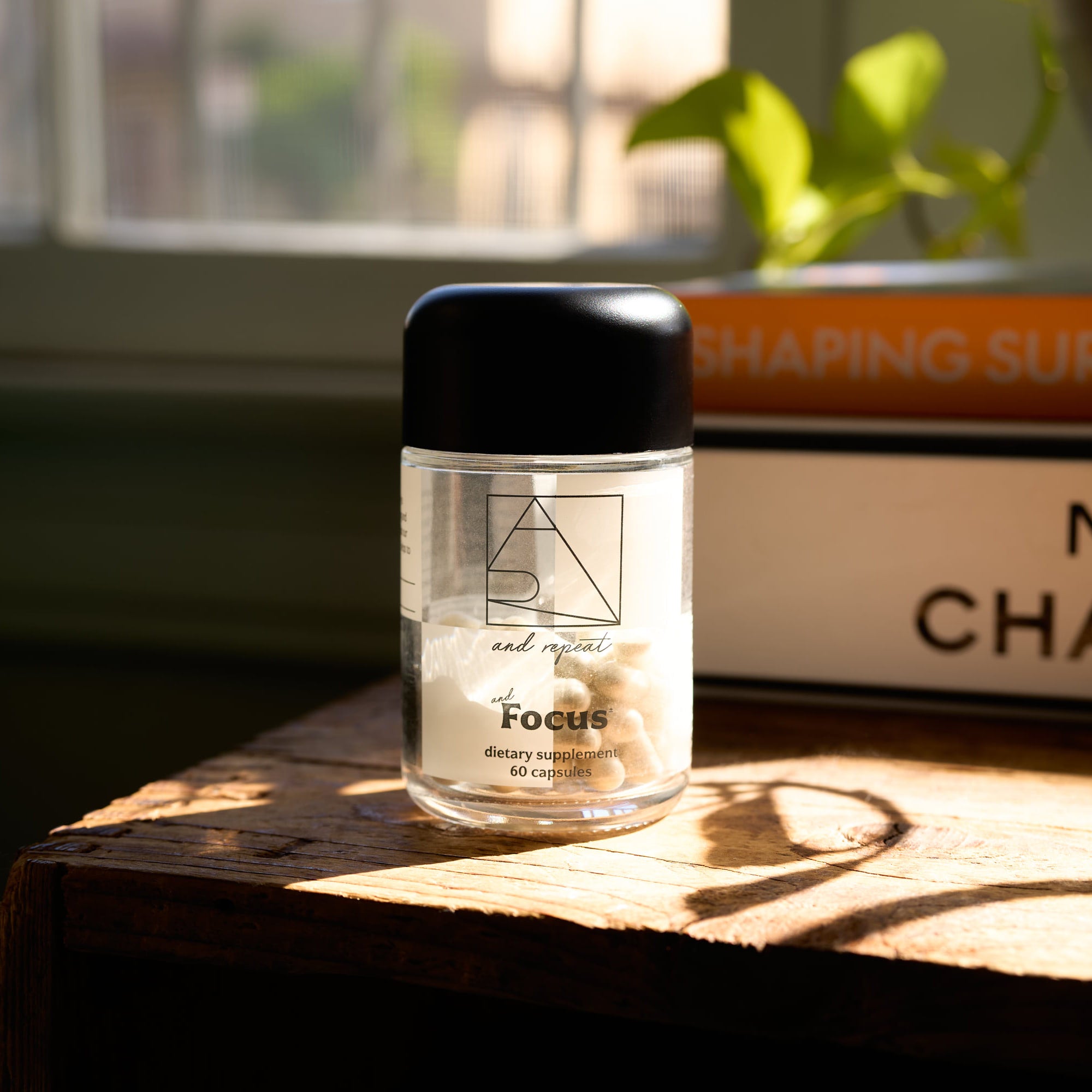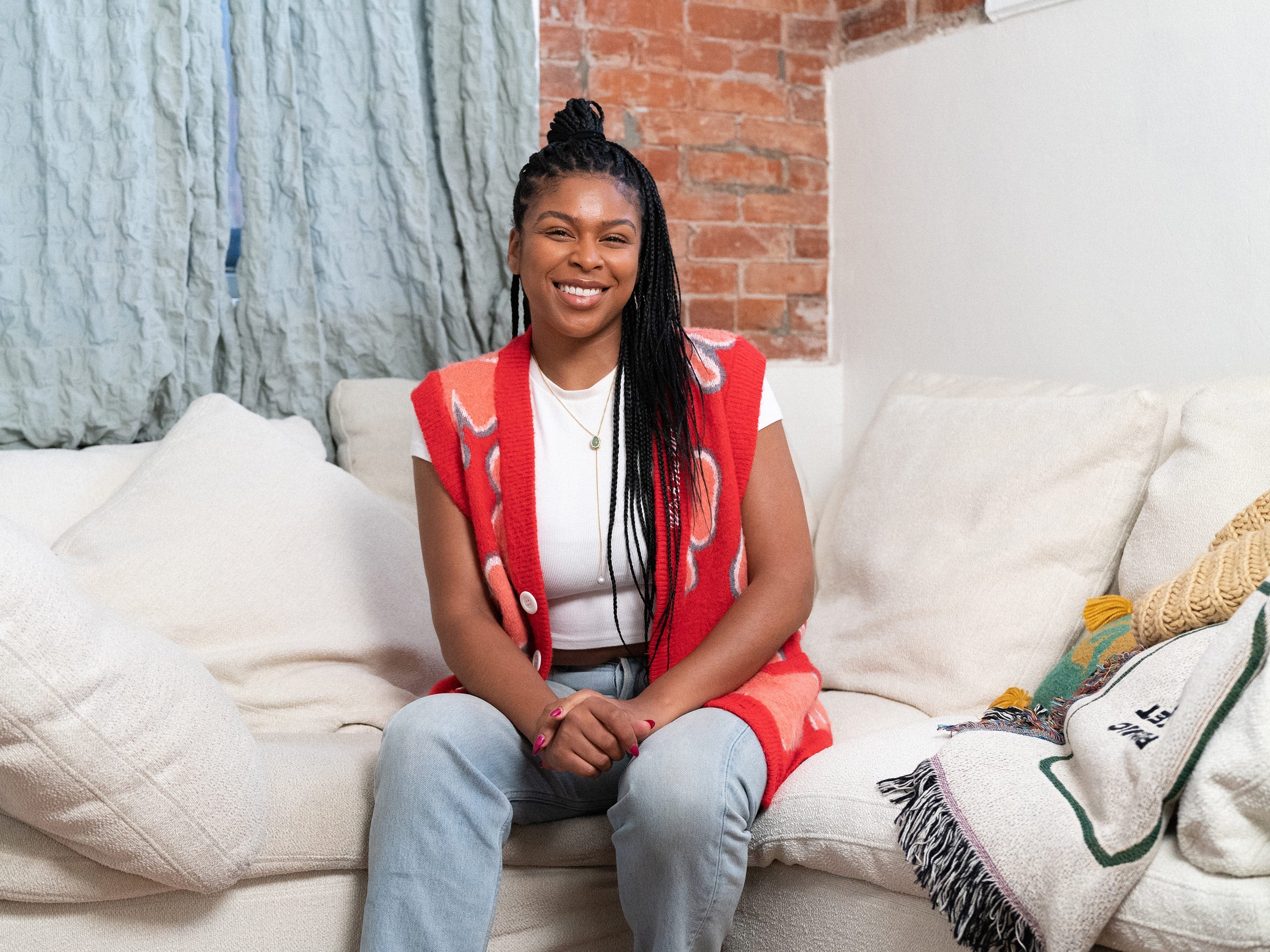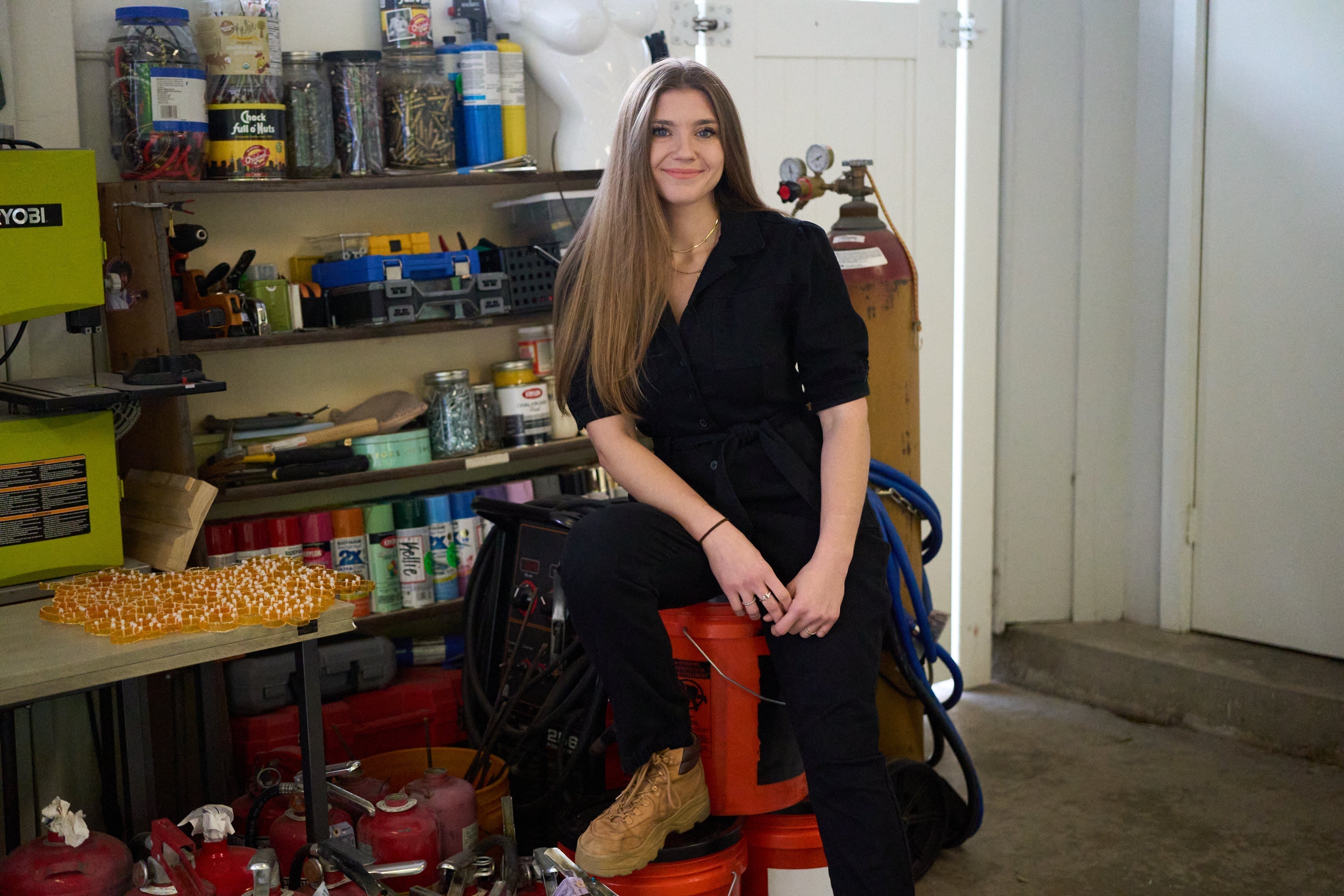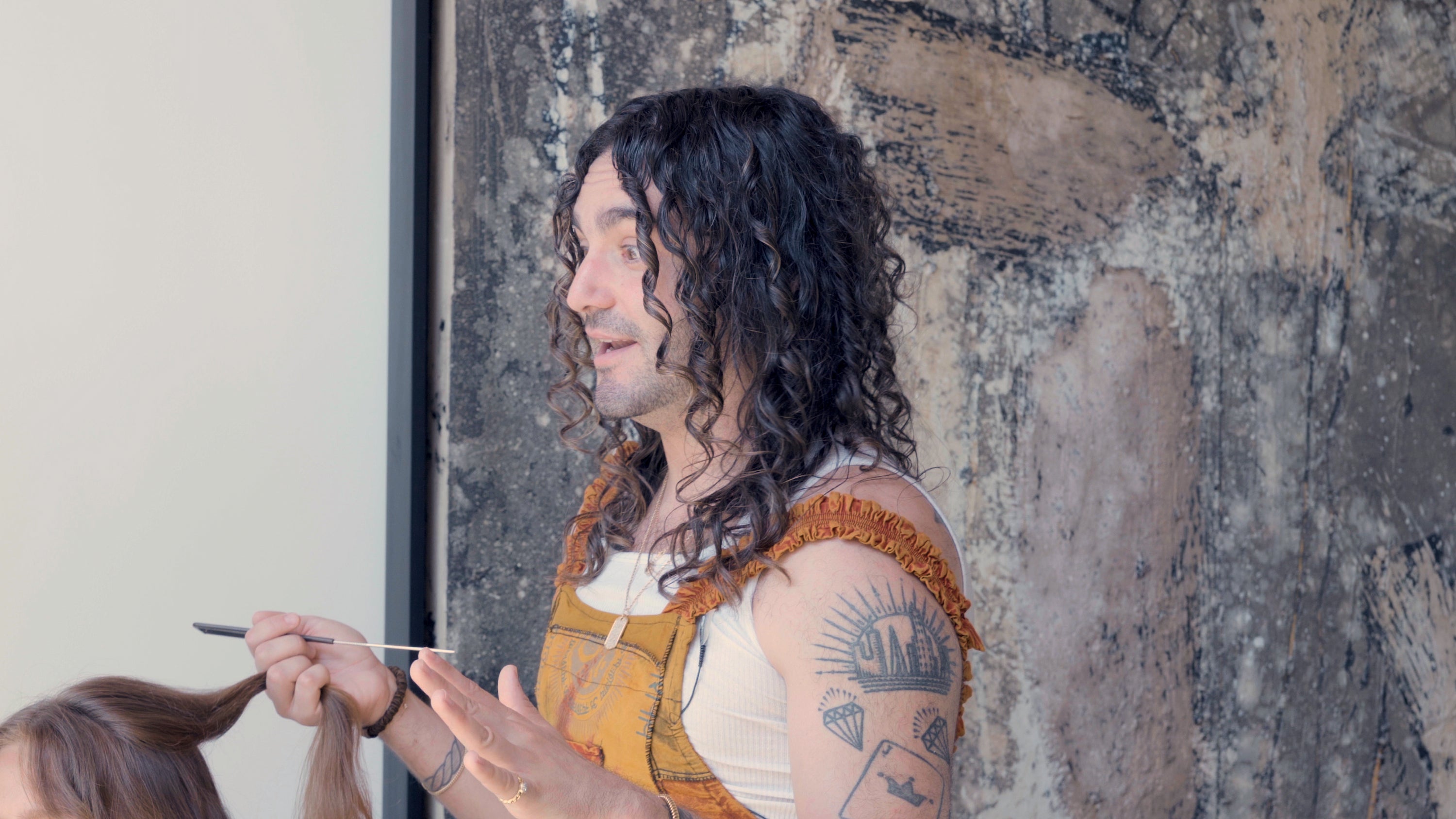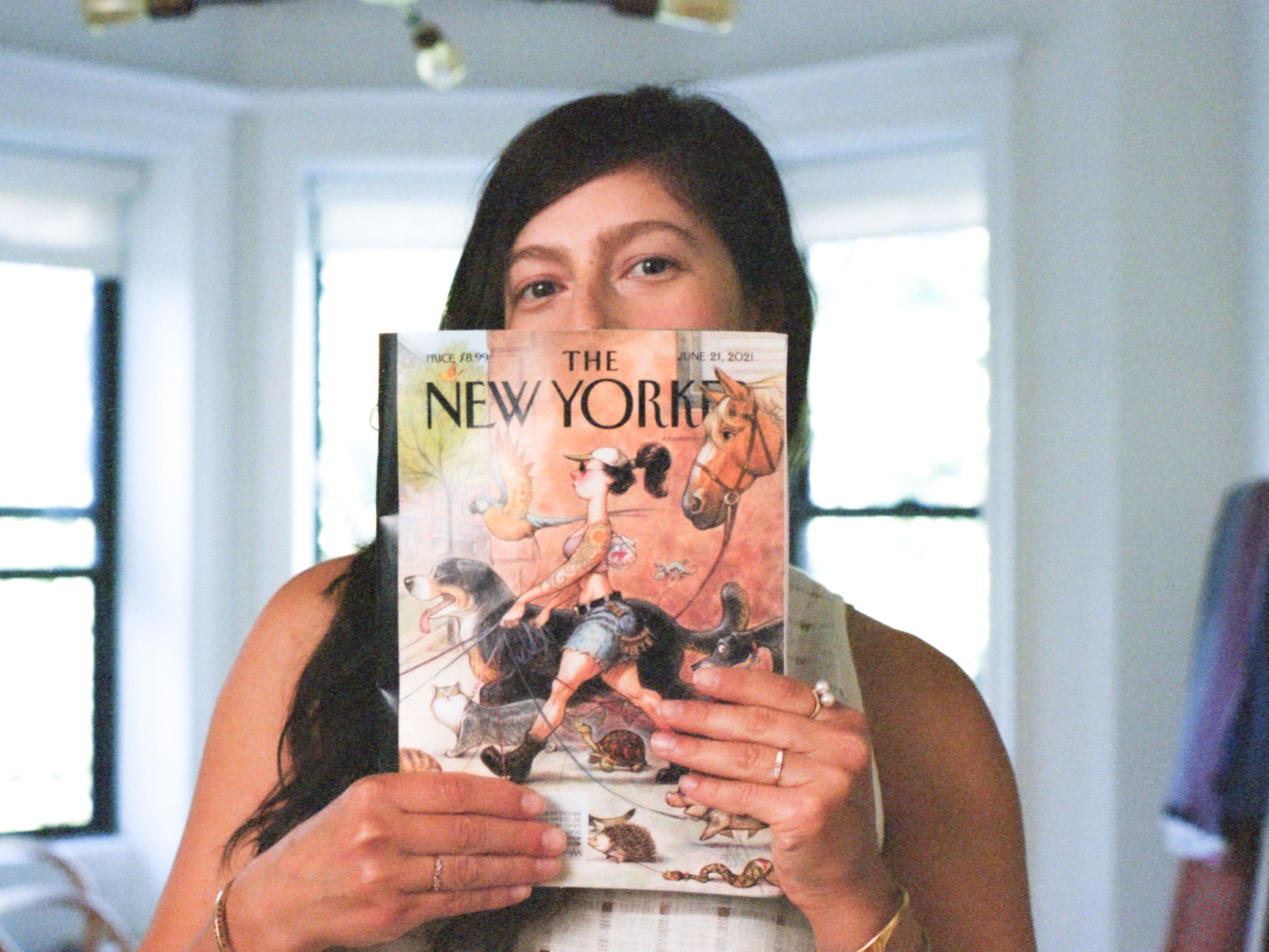The founder of Studio Symoné and the beauty editor at large at Los Angeles Times Image who believes beauty is about choice and agency, taking care of yourself and also thinking about where you decide to show up and how you decide to show up.
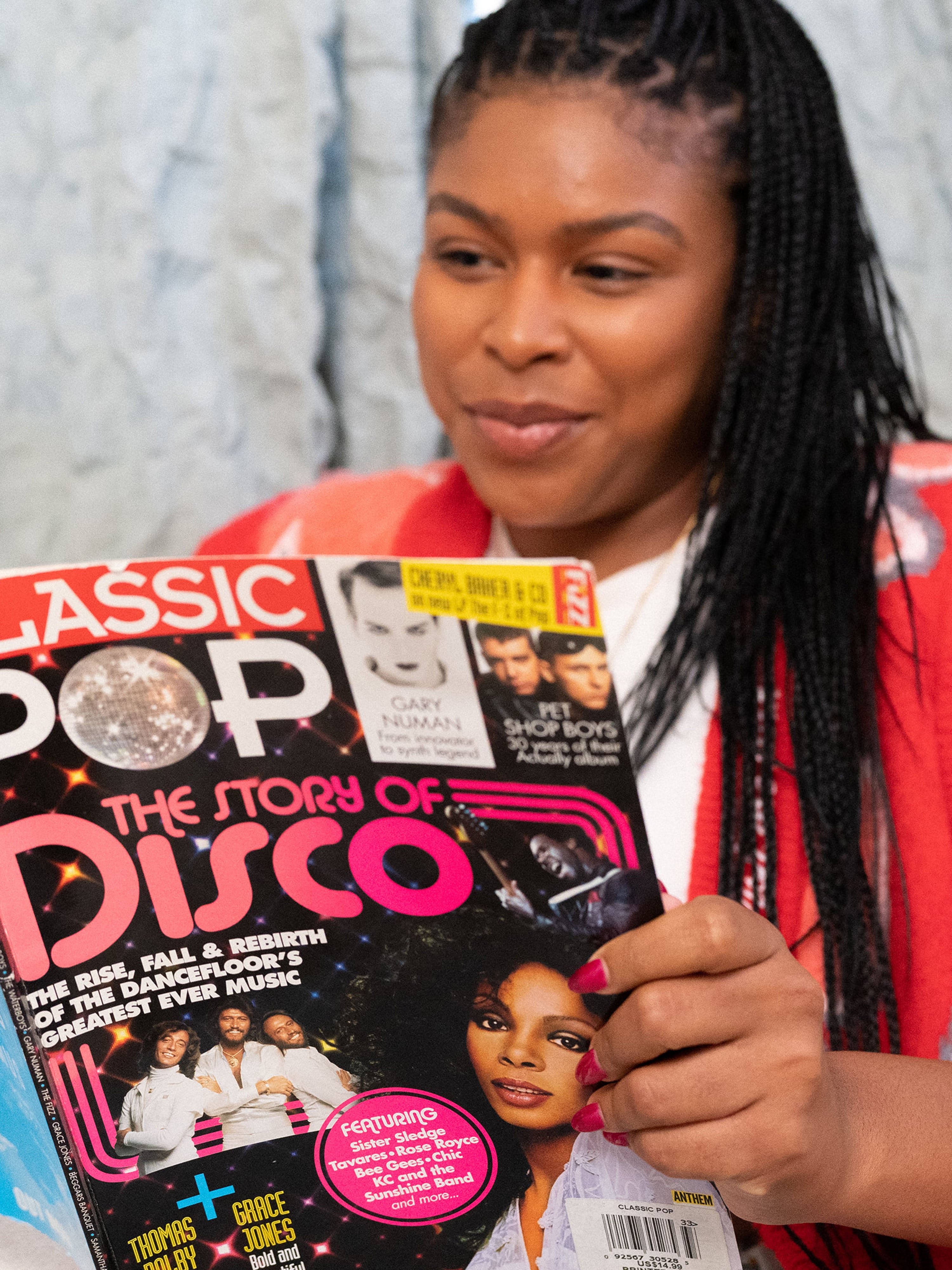
How do you relax and destress?
Reading allows me to take my mind off of whatever I’m doing or whatever is stressing me out, create space for me to imagine, and also rest my body. I love to sit on this couch and read when the sun is coming through. It feels really good to be in such a relaxed state, but to still use my mind in a different way.
I read everything. I love to read magazines and periodicals. I’m as much of a book person as I am a magazine person. I like to read everything from memoirs to anecdotal books to indie magazines, and fiction.
What is the significance of cannabis in your life?
I started to use cannabis for self-care once I got to LA. Living in a state where it’s legal is going to influence your life. Cannabis used to always be a social thing for me while living in New York and really wherever I lived. But coming here and particularly over the pandemic is when cannabis became something for me that helped to decrease my stress. But it’s also a time to make that concerted effort, to do something for myself, and not feel bad it.
Cannabis is more about relaxation for me. It’s very easy to use cannabis as a crutch. It’s very easy to use cannabis as a coping mechanism. I have had to figure out with cannabis the mode and the function for it and the intentionality behind why I’m doing it. All of those things have helped to empower me and make me feel really good about who I am and why I use it. I like to use it to wind down and in social settings too. I like to smoke at the end of the night, but I also like to smoke when I’m with friends, having a good conversation.
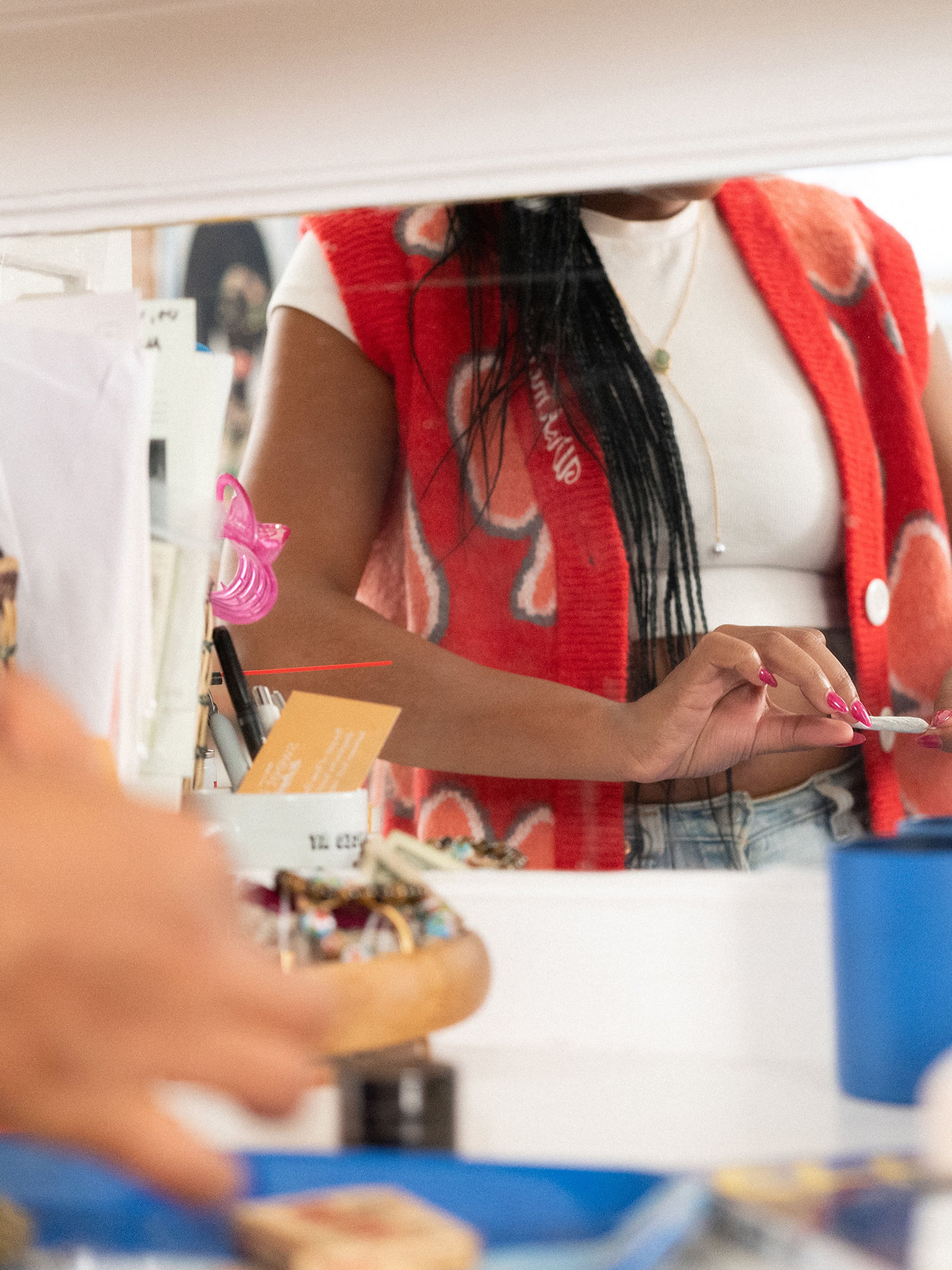
How do you practice self-care throughout the day?
I love to go for walks in the middle of the day, whether they’re 15 minutes or five minutes. For me, self-care is about these radical acts that you do for yourself during the middle of the day. It’s not just in the morning and it’s not just at night. I call them acts of rebellion because I feel like we haven’t grown up in a world that has supported breaks or rest or even naps.
After a meeting or after I finish answering some emails, I will go and take a walk. I will break away from what I’m doing. All of these things help my productivity.
You report on the intersection of beauty, pop culture, and politics. So how does that impact your mental health?
I feel that so much of how I approach beauty has also been a case study in and of itself for myself. It’s been the ultimate test of what my values are, what I truly care about, and how I want to serve my community. My community in the sense of people who follow me, people who read my work, people who live in LA, and also people who live in different parts of the world. That has been a guiding light.
I’ve tried to take the approach that the beauty products are the byproduct. My true passion is people. My true passion is interviewing, and having conversations. So beauty is the medium and the mode in which I approach it because our practices within beauty say a lot about us.
A lot of my job is pulling in stories, whether they are on a beauty site or intersect with beauty, but it may not be apparent initially. For instance, The Crown Act, which is around making race-based hair discrimination illegal. It has to do with Naomi Osaka deciding what she does and doesn’t want to do at a press conference or Simone Biles deciding that she’s not in a state where she wants to compete. I define beauty as being about choice and agency, taking care of yourself and also thinking about where you decide to show up and how you decide to show up.
With what you report on, do you ever feel overly passionate or a bit emotional on the subject at hand?
That happens to me all the time, especially if I’m talking about us as people and knowing that we have more power than capitalism, big brands, and marketing. There has been so much emphasis on how to sell things. We obviously live in a capitalist society and I get very passionate when I see possibilities for us to speak out on. There is so much bravery when people decide to show up as themselves. Again, the makeup is the medium. It’s really about who they are. And so I definitely get emotional if I talk about it or if I cover it because I want other people to feel it too.
People know me as a writer. I’m a reporter. I’m a journalist. I’m all those things. I’m a culture writer. I have packaged myself in a way that is initially very digestible to people in the sense of, okay, you get that Darian covers beauty, X, Y, Z. But I am so expansive. What I want to do is so beyond just writing for digital publications. There’s so many different ways to communicate, to foster community, and to gather other people for conversation.
I’m looking to move into a place in my life where yes I am a writer and those are where my skills are and that’s what I’ll always do. But also, people can see me as more than that. More of an artist and a creative where again, the writing is the medium, beauty is the topic of conversation, but I can show up in a variety of ways and it still makes sense. So that’s what I’m striving for right now.
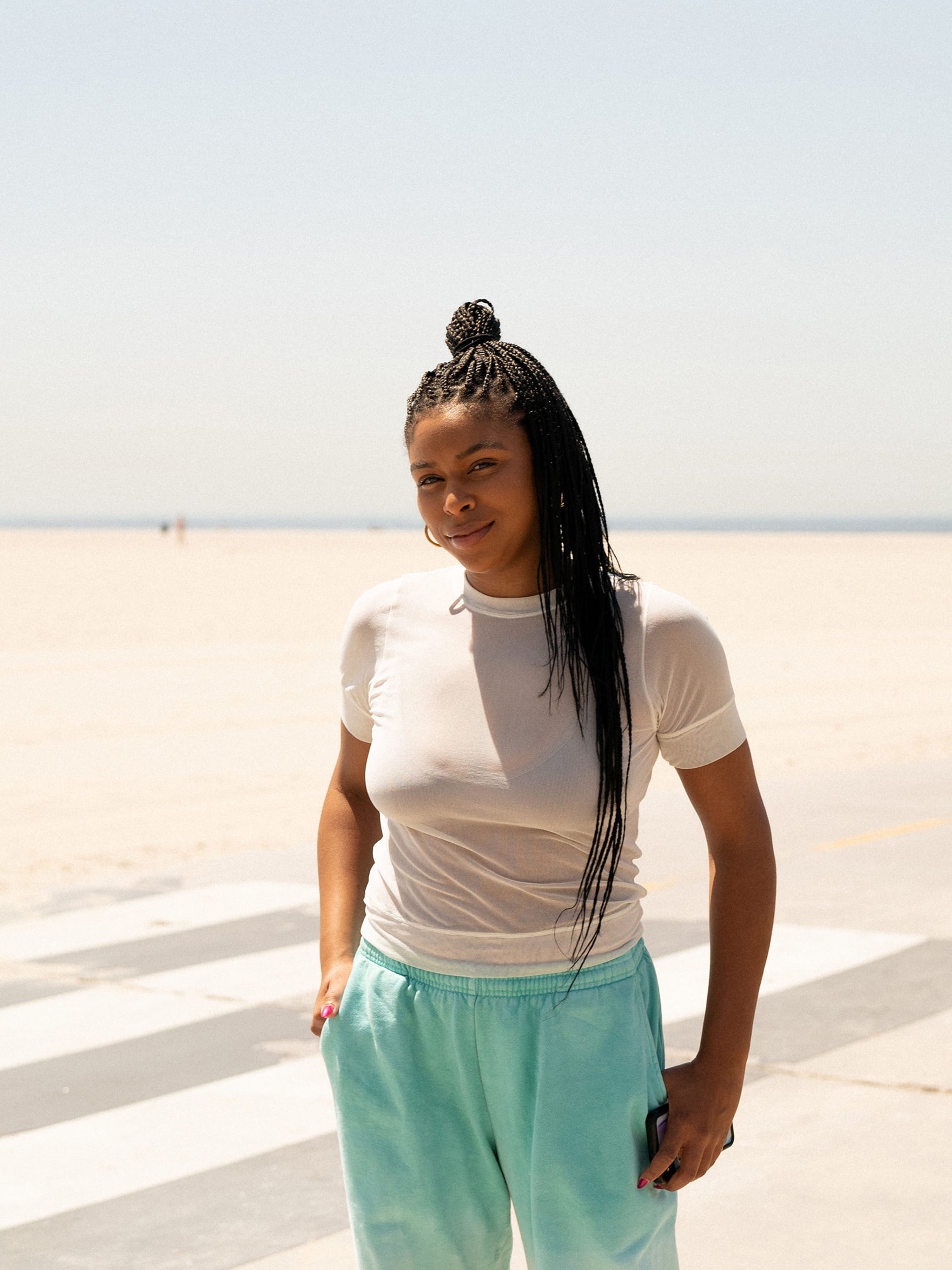
Is there anything you feel shame or stigma around?
Definitely stigma, especially as a Black woman. I still find that I have to think about what I view or what I have been fed as pristine and proper and presentable and acceptable in terms of how I walk out of the house. What does my hair look like? Is it acceptable where I’m going? Do I have on too much makeup, too little makeup? What shoes do I have on? Am I underdressed? Am I overdressed? What are people going to think of me at this moment, in this environment where I may be one of very few Black people. That’s something that I have a lot more confidence around, but I still always catch myself in these little moments as I’m trying to make sure I’m even carrying myself in the way that I want other people to view me.
